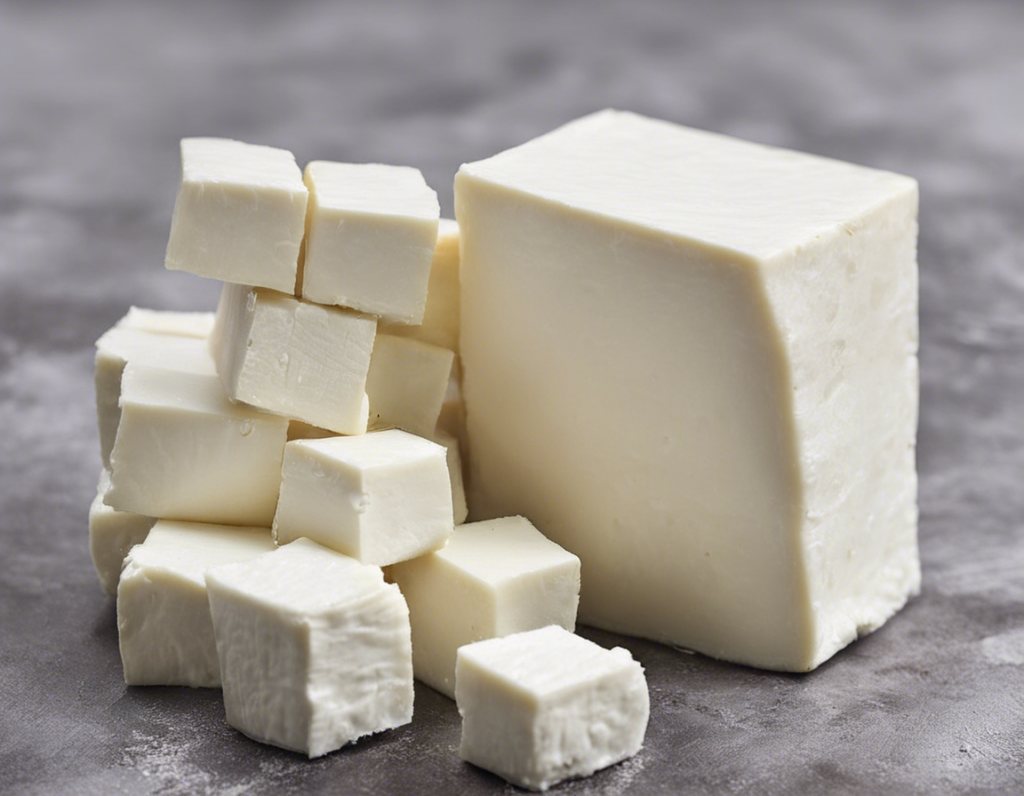Paneer, a popular dairy product in South Asian cuisine, is a type of fresh cheese commonly used in dishes such as curries, salads, and desserts. Made by curdling hot milk with an acidic substance like lemon juice or vinegar, paneer is then drained and pressed to form a firm block of cheese. This versatile ingredient not only adds a rich and creamy texture to dishes but also packs a powerful nutritional punch, especially in terms of protein content.
Protein Content in Paneer:
Paneer is renowned for its high protein content, making it a favorite among vegetarians and those looking to increase their protein intake. A 100g serving of paneer typically contains around 18g to 21g of protein, depending on the brand and preparation method. This significant amount of protein makes paneer an excellent choice for those looking to meet their daily protein requirements, especially for individuals following a vegetarian or high-protein diet.
Protein Benefits of Paneer:
Protein is an essential macronutrient that plays a crucial role in various functions within the body. Incorporating paneer into your diet can offer several benefits, including:
- Muscle Repair and Growth: Protein is crucial for muscle repair and growth, making it an important nutrient for athletes and individuals engaged in regular exercise.
- Satiety: Protein is known for its ability to promote feelings of fullness and satiety, which can aid in weight management and control.
- Metabolism: Protein has a higher thermic effect compared to fats and carbohydrates, meaning the body burns more calories during the digestion and absorption of protein-rich foods like paneer.
- Nutrient Absorption: Protein plays a role in the absorption of essential nutrients, ensuring that your body can make the most of the vitamins and minerals present in your diet.
Paneer vs. Other Protein Sources:
When comparing paneer to other protein sources, it stands out for several reasons:
- Vegetarian Option: Paneer provides a high-quality protein source for vegetarians and vegans who may have limited options in their diets.
- Complete Protein: Paneer, like most dairy products, is considered a complete protein, meaning it contains all nine essential amino acids that the body needs but cannot produce on its own.
- Versatility: Paneer can be incorporated into a wide range of dishes, from savory curries to sweet desserts, adding protein and flavor to your meals.
Tips for Including Paneer in Your Diet:
If you’re looking to boost your protein intake with paneer, here are some tips to consider:
- Incorporate into Curries: Add paneer cubes to rich and flavorful curries like paneer tikka masala or matar paneer for a protein-packed meal.
- Grill or Pan-Fry: Marinate paneer cubes with spices and grill or pan-fry them for a delicious appetizer or topping for salads.
- Blend into Smoothies: For a creamy and protein-rich smoothie, blend paneer with fruits, milk, and a touch of honey for a nutritious snack.
- Top Salads: Crumble paneer over salads for an added protein boost and a touch of creaminess.
- Bake into Desserts: Paneer can be used in desserts like rasgulla or sandesh for a sweet treat that’s also high in protein.
Frequently Asked Questions (FAQs) About Paneer:
Q: Is paneer suitable for individuals who are lactose intolerant?
A: Paneer is a dairy product and contains lactose, so individuals who are lactose intolerant may experience discomfort or digestive issues after consuming it. However, some people with lactose intolerance find that they can tolerate certain dairy products like paneer in small amounts.
Q: Can paneer be frozen for future use?
A: Yes, paneer can be frozen for up to 2-3 months. It’s best to wrap the paneer tightly in plastic wrap or aluminum foil before freezing. Thaw it in the refrigerator when ready to use.
Q: How can I make paneer at home?
A: To make paneer at home, heat milk until it starts boiling, then add a few tablespoons of lemon juice or vinegar to curdle the milk. Once the curds and whey separate, strain the mixture through a cheesecloth, rinse with cold water, and press to form a block of paneer.
Q: Is paneer a good source of calcium?
A: Yes, paneer is a good source of calcium, a mineral essential for bone health, muscle function, and nerve signaling. Incorporating paneer into your diet can help you meet your daily calcium requirements.
Q: Can paneer be used as a meat substitute in dishes?
A: Paneer is a versatile ingredient that can be used as a meat substitute in various dishes. Its firm texture and ability to absorb flavors make it a great option for vegetarian versions of traditionally meat-based dishes.
In conclusion, paneer’s impressive protein content makes it a valuable addition to a balanced diet, providing essential nutrients while adding flavor and texture to a wide range of dishes. Whether you’re a vegetarian looking to up your protein intake or simply want to explore new culinary possibilities, paneer offers a delicious and nutritious option to consider.
